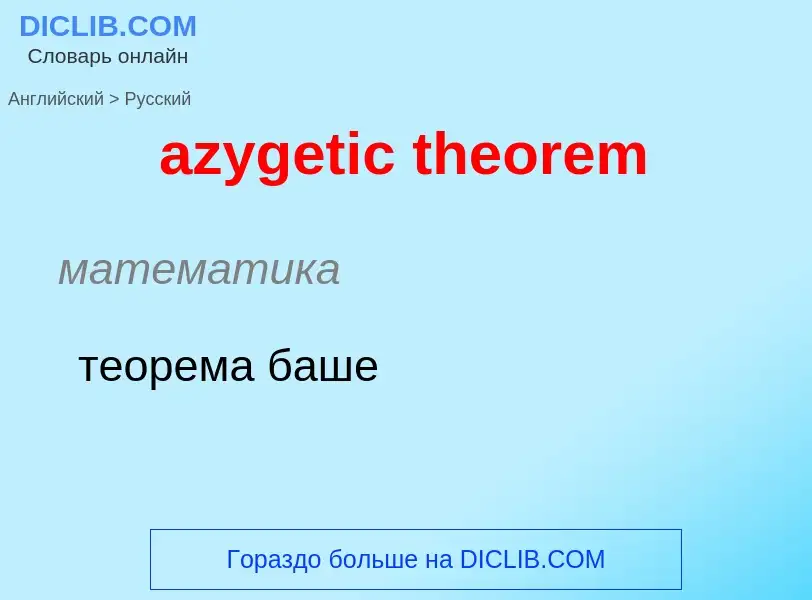Translation and analysis of words by ChatGPT artificial intelligence
On this page you can get a detailed analysis of a word or phrase, produced by the best artificial intelligence technology to date:
- how the word is used
- frequency of use
- it is used more often in oral or written speech
- word translation options
- usage examples (several phrases with translation)
- etymology
azygetic theorem - translation to russian
математика
теорема баше
математика
теорема о дивергенции
теорема Гаусса-Остроградского
математика
формальная теорема
Definition
Wikipedia
In mathematical logic, Löb's theorem states that in Peano arithmetic (PA) (or any formal system including PA), for any formula P, if it is provable in PA that "if P is provable in PA then P is true", then P is provable in PA. If Prov(P) means that the formula P is provable, we may express this more formally as
- If
- then
An immediate corollary (the contrapositive) of Löb's theorem is that, if P is not provable in PA, then "if P is provable in PA, then P is true" is not provable in PA. For example, "If is provable in PA, then " is not provable in PA.
Löb's theorem is named for Martin Hugo Löb, who formulated it in 1955. It is related to Curry's paradox.





![universality]]) resembles the [[Mandelbrot set]]. universality]]) resembles the [[Mandelbrot set]].](https://commons.wikimedia.org/wiki/Special:FilePath/CollatzFractal.png?width=200)
